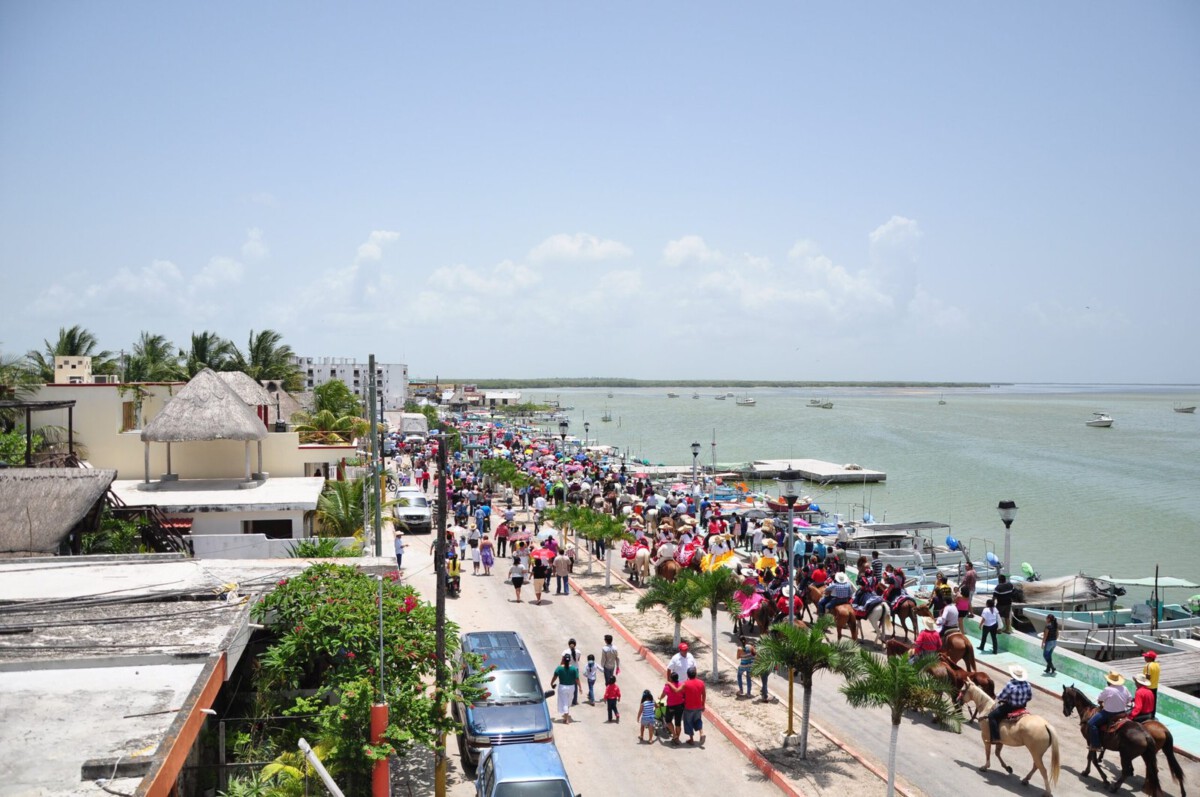Ignoring Local Laws on Photography

Snapping photos during your travels feels almost second nature these days. However, many countries have strict rules about where and what you can photograph. In Egypt, for example, the government strictly forbids taking pictures near military sites or government buildings, and breaking this rule can result in immediate arrest or even equipment confiscation. The International Travel Safety Association’s 2024 report highlights that 12% of global traveler detentions were tied to unauthorized photography—an increase from previous years. Even seemingly harmless sites like train stations or airports can be off-limits in places like Russia or Turkey. Street photography, especially if it includes locals without their consent, can also provoke negative reactions or lead to police questioning. Always check signage and local laws before raising your camera, and when in doubt, ask for permission. Being cautious with your camera could save you from a hassle you never expected.
Disrespecting Dress Codes

Travelers often pack for comfort and style, but ignoring local dress expectations can land you in hot water. Countries in the Middle East, such as Saudi Arabia and Iran, enforce conservative dress codes, especially for women. Even exposed shoulders or knees can result in fines, public shaming, or denial of entry into public spaces. The Global Cultural Compliance Survey 2025 found that 18% of tourists faced penalties or official warnings for inappropriate attire. This isn’t just about religious places—some shopping malls and government buildings also enforce these codes. In Southeast Asia, entering temples with shorts or sleeveless tops is considered deeply disrespectful. To avoid embarrassment or worse, research dress codes for your destination and err on the side of modesty. Respect for local norms will keep you out of trouble and win you goodwill.
Public Displays of Affection (PDA)

A quick hug or kiss might seem innocent, but public displays of affection can cause real problems in many places. In the United Arab Emirates, holding hands or kissing in public can actually result in arrest or deportation. Indonesia, Qatar, and even parts of India have similar restrictions, especially for unmarried couples. The World Tourism Watch’s 2023 report found that 7% of travelers received warnings or fines due to PDA violations. Even if you see locals being affectionate, remember that social norms may be stricter for foreigners. What’s acceptable in Paris or New York can be a scandal in Dubai or Jakarta. To avoid trouble, keep romance private and save affection for your hotel room or other appropriate settings.
Using Offensive Gestures

Gestures can speak louder than words—and not always the way you intend. The “thumbs up” sign might mean “good job” at home, but in countries like Greece, Iran, or parts of West Africa, it’s considered rude or even obscene. The Cross-Cultural Etiquette Report 2024 revealed that 9% of travel conflicts stemmed from misunderstandings involving gestures. The “OK” sign, waving, or pointing with a single finger can also be problematic in different regions. Even little things like showing the soles of your feet in Thailand or patting someone on the head in Buddhist countries may offend. Before you travel, spend a few minutes learning about local body language. It’s a small effort that can save you from major embarrassment—and some awkward explanations to the police.
Disrespecting Religious Sites

Visiting religious sites is a highlight for many travelers, but cultural missteps can lead to serious trouble. For instance, failing to remove your shoes before entering a mosque or temple is seen as highly disrespectful in many countries. Inappropriate clothing or loud behavior can get you kicked out or fined on the spot. UNESCO’s 2023 report noted a 15% increase in complaints from religious communities about tourist behavior. In places like Italy, covering your shoulders and knees is mandatory in churches, and breaking these rules can result in denial of entry or fines. Even taking selfies inside sacred spaces is frowned upon in several countries. Research the rules, dress appropriately, and act respectfully to avoid negative reactions from locals and authorities alike.
Overusing Your Phone in Public

Using your phone in public may be routine at home, but it’s viewed differently in other cultures. In Japan and South Korea, talking loudly on your phone in public transport is considered rude and disruptive. The 2024 Global Etiquette Survey found that 11% of international travelers were reprimanded for poor phone manners. In some countries, taking photos or videos of strangers without their consent is not just rude—it’s illegal. Using your phone in museums, temples, or during performances can also lead to warnings or removal. Remember that constant phone use can make you a target for pickpockets or scammers, especially in crowded tourist areas. Keep your phone use discreet and be mindful of your surroundings to avoid unwanted attention.
Ignoring Local Traffic Rules

Crossing the street outside of crosswalks, jaywalking, or failing to follow traffic signals can get you into real trouble abroad. In Singapore, jaywalking is punishable by fines up to SGD 1,000 (about USD 740). The International Road Safety Report 2025 shows that 14% of tourist accidents result from ignoring local traffic laws. Even something as simple as riding a bike without a helmet is a legal offense in countries like Australia and New Zealand. Not understanding right-of-way rules or local street layouts can also put you at risk. Always observe how locals navigate traffic and look up basic road laws before you arrive. Following these rules keeps you safe—and out of the hands of the law.
Not Declaring Goods at Customs

Skipping the customs declaration form or failing to list certain items can have serious consequences. According to the World Customs Organization’s 2023 report, 20% of penalties imposed on travelers were due to undeclared goods. This includes everything from food and alcohol to electronics and souvenirs. Some countries have strict bans on animal products, medications, or even seeds. In Australia, failing to declare even a snack can result in on-the-spot fines or detainment. Always read the customs rules for your destination, declare everything required, and don’t assume small items will go unnoticed. Honest declarations save time, money, and the headache of dealing with customs officials.
Using Drugs or Carrying Prescription Medications Without Proper Documentation

Drug laws are among the strictest travel regulations globally, and what’s legal at home may be a serious crime elsewhere. For instance, common ADHD medications are considered controlled substances in Japan and the UAE. The 2024 Global Drug Enforcement Agency data shows 5% of traveler arrests involved carrying prescription drugs without proper documentation. Even a few pills can result in detainment or prosecution. Always carry a doctor’s note and, if possible, an official translation. Research which medications are restricted or banned, and only bring what you need in original packaging. This simple step can keep you out of jail and on the right side of the law.
Engaging in Political Discussions or Protests

Expressing political opinions or joining demonstrations can be risky—even dangerous—in many countries. In China, Russia, or some Middle Eastern nations, foreign nationals found participating in protests or criticizing the government can face detention or deportation. Human Rights Watch’s 2025 report documented a rise in traveler detentions linked to political activities and social media posts. Even sharing or liking content online can be monitored in some places and used as evidence against you. Avoid engaging in political debates, protests, or posting critical comments on local social media. Your right to free speech doesn’t always travel with you, so keep opinions private to stay out of trouble.
Disrespecting Local Wildlife and Environment

Interacting with wildlife, feeding animals, or littering in natural spaces is strictly regulated in many countries. In Australia, fines for disturbing wildlife can reach AUD 10,000 (USD 6,800), and similar penalties exist in national parks worldwide. The 2023 Environmental Travel Impact Study found that 13% of penalties faced by tourists related to environmental violations. Even picking flowers or collecting rocks in protected areas can result in fines or bans. Many countries now have strict eco-tourism policies, so always follow posted rules and guidelines. Respecting wildlife and the environment isn’t just ethical—it’s required by law in many places.
Overstaying Your Visa

Losing track of your visa’s expiration date is easier than you think, and the consequences can be severe. The International Migration Report 2024 found that over 30% of legal issues faced by travelers were due to visa overstays. Penalties range from fines to immediate deportation, and some countries may bar you from re-entry for years. Even a short overstay can create long-term problems with future visa applications or travel plans. Always know the rules, check your passport stamps, and apply for an extension before your visa runs out. A calendar reminder could save you from a costly mistake.
Using Unlicensed Taxis or Transport

Grabbing the first taxi you see at the airport might seem convenient, but using unlicensed transportation can be dangerous. In cities like Bangkok and Mexico City, unlicensed taxis are often linked to scams, price gouging, or even crimes against tourists. The 2025 Global Travel Safety Index found that 8% of incidents involving travelers were related to unlicensed transport. Official taxis usually have visible permits, meters, and regulated prices. When in doubt, use ride-hailing apps or hotel-recommended services. Taking a few extra minutes to verify your ride can protect you from theft, assault, or worse.
Public Consumption of Alcohol

Enjoying a drink outdoors may be legal in your hometown, but it’s strictly forbidden in many countries. In Saudi Arabia, public alcohol consumption can lead to jail time or lashings, and in parts of India, you may face hefty fines. The 2024 Alcohol Regulation Survey noted that 10% of traveler arrests were due to public drinking offenses. In places like the UK or Australia, there are designated alcohol-free zones where drinking is illegal. Always check local laws before opening a bottle in public, and stick to bars, restaurants, or hotel rooms. A celebratory toast could otherwise turn into a legal nightmare.
Failing to Learn Basic Local Language Phrases

While not a crime, failing to learn basic phrases can lead to misunderstandings and even unsafe situations. The 2023 Language and Travel Study shows that travelers who made the effort to learn greetings, polite expressions, or emergency words faced 25% fewer conflicts. In some countries, refusing to try the local language is seen as disrespectful or arrogant, which can make officials or locals less willing to help you in a crisis. Knowing how to say “thank you,” “please,” or “help” can open doors and smooth over minor mishaps. A few words of effort show respect—and could be the difference between a friendly encounter and a difficult situation.



